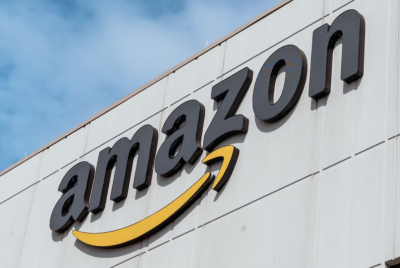EchoStar Stocks Surges: Why This Telco Company Is Winning Following Massive $23 Billion Deal From AT&T
The deal is aimed at easing regulatory strains and strengthening both companies' strategic positions

Stocks of American telco company EchoStar have seen a sudden surge following its latest announcement to sell off its 3.45 GHz and 600 MHz spectrum licenses to telco giant AT&T for $23 billion (£17.07 billion). The deal has been officially finalised in response to EchoStar's ongoing efforts to resolve the Federal Communications Commission's (FCC) inquiries regarding its wireless spectrum licenses.
More on EchoStar's Stock Performance
EchoStar's stock has delivered a stunning rally following its announcement that AT&T will acquire its mid- and low-band wireless spectrum for roughly $23 billion (£17.07 billion), a deal aimed at easing regulatory strains and strengthening both companies' strategic positions.
Shares soared between 76% and 80%, reaching fresh highs near $53-$55 (£39.33-£40.81), with pre-market jumps of over 58% before trading opened today.
Analysts view the deal as a strong validation of EchoStar's valuable spectrum assets and a necessary pivot amid its debt pressures and FCC scrutiny. Citi's Michael Rollins lauded the terms as 'favourable spectrum monetisation', while others noted the move provides capital for debt reduction and supports continued operation of EchoStar's Boost Mobile through a hybrid mobile network partnership.
What's In This Telco Deal?
In a press release issued by EchoStar, it stated that the deal is accompanied by an amended network services agreement, enabling EchoStar to operate Boost Mobile as a hybrid mobile network operator, utilising its cloud-native 5G core alongside AT&T's national cell sites. This arrangement ensures uninterrupted service and continued access to the T-Mobile network.
Moreover, EchoStar expects to use the proceeds to retire debt and fund growth, while this move helps resolve FCC spectrum utilisation inquiries — marking a strategic pivot in its telecommunications operations.
It is worth noting that the operations of EchoStar's other businesses, including DISH TV, Sling and Hughes, will not be impacted by this transaction.
'This transaction puts our business on a solid financial path, further facilitating EchoStar's long-term success, and enhancing our ability to innovate and compete as a hybrid network operator. The proceeds of this transaction will be used for, among other things, retiring certain debt obligations and funding EchoStar's continued operations and growth initiatives', said Hamid Akhavan, CEO and president, EchoStar.
He added, 'We continue to evaluate strategic opportunities for our remaining spectrum portfolio in partnership with the US government and wireless industry participants'.
A Deal Borne Out of A 'Disappointing' Q2
It is worth noting that EchoStar's latest deal follows the telco's recent report on Q2 2025 revenue of $3.72 billion (£2.76 billion), a 5.8% year-over-year decline that fell short of the expected $3.82 billion (£2.83 billion), prompting an 8.9% pre-market share drop.
Its wireless segment bucked the trend, growing 4.7% to $935 million (£693.82 million) and adding 212,000 subscribers, while Pay-TV and broadband segments posted weaker results.
EchoStar maintains focus on operational efficiency and positive free cash flow, but ongoing pressure from shrinking revenue and continued losses poses challenges for its turnaround strategy.
Relevance in the US Telco Space
Taken together, EchoStar's blockbuster spectrum sale, evolving network partnership with AT&T, and mixed financial results underscore a company in transition — balancing immediate capital needs with long-term relevance in the US telecom landscape.
While investors welcomed the spectrum monetisation and analysts view the AT&T agreement as strategically favourable, the recent earnings miss highlights ongoing operational hurdles. The coming quarters will test whether EchoStar can convert its strengthened liquidity and hybrid MNO model into sustainable growth, while simultaneously addressing FCC scrutiny and subscriber retention.
With both opportunities and risks ahead, the company's ability to execute will determine whether this pivot restores investor confidence.
© Copyright IBTimes 2025. All rights reserved.




















